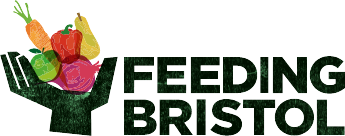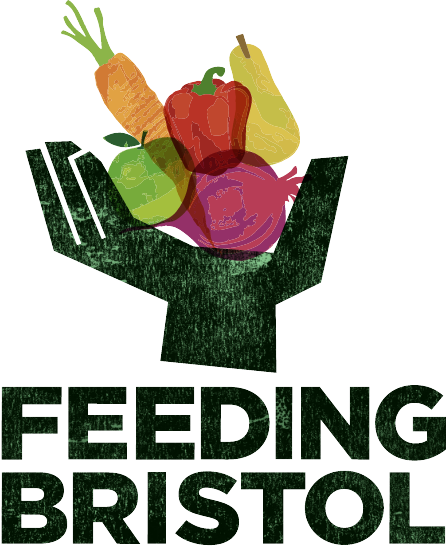Food is a basic human right.
It is fundamental to our survival, but also intimately connected to social and cultural identity. How and what we eat has a big impact on our health and wellbeing.
To thrive, everyone should have access to nutritious, affordable, and culturally appropriate food. However, we know that this is not always the case.
Food insecurity in Bristol
Food insecurity has significantly increased over recent years, and in Bristol, 1 in 12 households now experience ‘moderate’ to ‘severe’ food insecurity – a number that doubles to 1 in 6 households in some of the city’s most disadvantaged areas (JSNA, 2022/23).
This is an injustice. No one should experience food insecurity.

1 in 12 households
experience ‘moderate’ to ‘severe’ food insecurity in Bristol
The causes of food insecurity
Food insecurity is primarily driven by financial hardship – the inability to afford food – which is created by factors like insecure and low-paid employment, welfare reform, and the rising cost of living. But it is also an issue shaped by limited availability and access to nutritious, affordable, and appropriate food. In Bristol, we know that this can be more, or less, challenging depending on where you live in the city.
Who does this affect?
Food insecurity is not felt equally across society. In addition to the impact of geography, certain groups are more likely to be at risk of food insecurity than others. In Bristol, disabled people; single parents; Black, Asian and Minoritised Ethnic people; younger people (aged 16-24); carers; and people who identify as Lesbian, Gay or Bisexual (LGB) are more likely to experience food insecurity.
Solutions need to reflect the diversity of those experiencing food insecurity in the city.
How does it affect society as a whole?
Food insecurity affects all of us, directly and indirectly. When people experience food insecurity in our society, it has an impact on health and wellbeing, educational attainment, and our local economy – all of which are essential for ensuring we have healthy, happy, and thriving communities.
It is an injustice that has far-reaching consequences for Bristol and for our society.
The wider food system
Food insecurity is part of a wider problem with our food system. It is an injustice that is compounded by national and local food systems that are not fit for purpose.
Inequity has been built into our food system. From the way we grow food and care for those who produce it, to the way we process, transport, sell and access food. We are disconnected from the land and how food is grown, and in danger of creating an irreversible change to our food culture. This is a pressing issue because the way our food systems operate are damaging our climate and the natural world, and disproportionately affecting vulnerable communities and those living in poverty.
Our food system is inequitable and unjust, and we need to think more innovatively about how food can be used to help regenerate our communities and the planet we live on.
How can we work together for food justice?
To achieve food justice, we need to listen to each other and work together. Food justice is not going to be achieved overnight, but by improving awareness, engagement, communication and collaboration, we can improve our food system.
If you want to see how you can get involved and work collaboratively to achieve food justice, see the One City Food Equality Action Plan (2023-26) or get in touch to hear more about how Feeding Bristol is working together for food justice.




